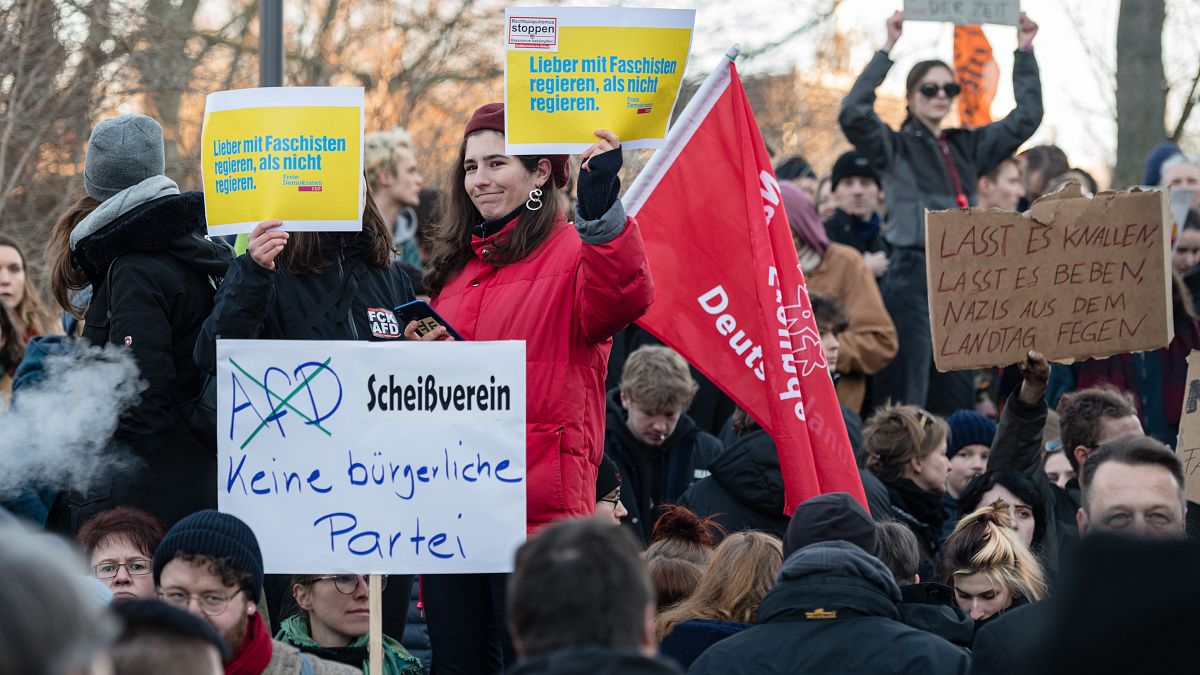Thomas Kemmerich of the small Free Democrats party was elected in Thuringia thanks to votes from the far-right Alternative for Germany, causing a national outcry.
The new governor of an eastern German state has said he will step down after just one day in office, following a national outcry over his election which was secured with the help of far-right votes.
Initially Thomas Kemmerich resisted pressure to quit in Thuringia, saying he had done and would do no deals with the Alternative for Germany (AfD) party.
But on Thursday he said he "resignation is inevitable", and said he would seek a new regional vote. However, he did not specify when he would leave office – and still insisted he had made no mistakes.
Earlier, German Chancellor Angela Merkel condemned his election. Kemmerich, of the pro-business Free Democrats (FDP), was also backed by the local branch of Merkel’s Christian Democrats (CDU) – triggering a political earthquake.
As protesters took to the streets of Berlin and Erfurt, the capital of Thuringia, left-wing and centre-right parties said a long-standing tradition of shunning the far-right in the country had been broken.
“This event is inexcusable and so the result must be reversed,” Merkel told a news conference during a visit to South Africa on Thursday.
Leaders of the CDU also called for a new election in Thuringia. Annegret Kramp-Karrenbauer, who succeeded Merkel as party leader in 2018, said local CDU lawmakers disobeyed instructions from the national leadership in voting for Kemmerich.
Olaf Boehnke, senior adviser at the political consultancy Rasmussen Global, told Euronews Tonight that the vote will have long-term repercussions for the political landscape in Germany.
Watch the interview with Olaf Boehnke in the video player above.
How did the Thuringia result happen?
At the state election last October, the FDP only just cleared the 5% bar to enter the regional parliament. Early rounds of voting in the parliament led to expectations that the left-wing Die Linke party would stay in office as head of a “red-red-green” coalition.
But in the third round, the AfD unexpectedly ditched its backing for another candidate to support Kemmerich. Together with votes from the CDU, he beat Bodo Ramelow of Die Linke by one vote – 45 to 44.
Kemmerich said he would not form a coalition with the AfD, but the outcome brought anger across the political mainstream in Germany.
The AfD’s state leader in Thuringia is Björn Höcke, a controversial figure even in his own party, whose rhetoric has been compared to Hitler's and who has criticised German policy on the Holocaust.
Paul Ziemiak, the party’s secretary-general, called it a “dark day” for the state.
Criticising his own party in Thuringia, he said its decision had divided Germany and was made worse by the fact that it had enabled a governor to be elected “with the votes of Nazis”.


